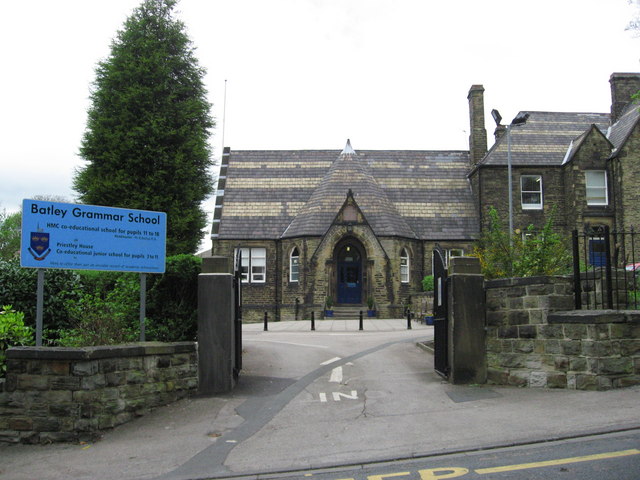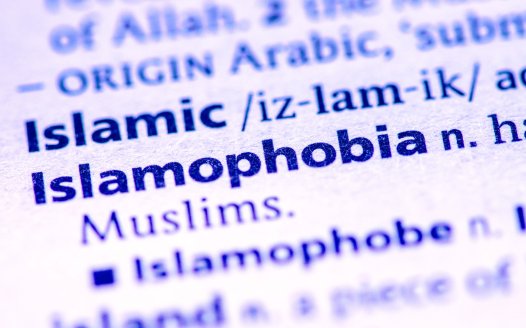Three years on, the lessons of Batley are yet to be learned
Posted: Thu, 4th Apr 2024 by Jack Rivington
The Batley affair exposed the Islamist threat to UK schools. We're still yet to come to terms with its implications, says Jack Rivington.
In March 2021, fearing for his life and his family, a religious studies teacher at Batley Grammar School fled his job and home. A campaign of threats and intimidation was underway, instigated by fundamentalist Muslims demanding retribution for his use of a 'blasphemous' drawing of Muhammed during lessons.
As revealed in the new review by the Independent Advisor on Social Cohesion and Resilience Sara Khan, the teacher was utterly failed by the school, police, and political authorities. Their response exposed a severe lack of understanding of the seriousness of blasphemy accusations, and only succeeded in validating and encouraging the demands of the mob.
This is particularly true of Batley Grammar School (BGS), which decided to issue an apology to the parents of every pupil after a single menacing phone call. The apology provided no context or explanation for the lesson's content, and leaders did not consult the religious studies (RS) teacher before sending it.
This attempt at appeasement actually invited further pressure, legitimising religious outrage by accepting there was something that required an apology. Now faced with agitators outside the school gates, and the sharing of the teacher's image and personal details online, the school capitulated. Senior leaders denounced the use of the image at a televised press conference, and met several self-appointed 'community leaders' - none of whom were parents. They also suspended the teacher, isolating him by preventing communication with his colleagues.
The effect of this ordeal upon the teacher and his family has been severe. He remains in hiding, unable to return home, and living with the effects of post-traumatic stress disorder and suicidal thoughts. His children missed months of education, and had to sleep on the floor of squalid temporary accommodation.
Galling as it is to see Batley Multi Academy Trust stand by its actions in the Khan review, schools are under-equipped and under-qualified to manage situations like those faced by BGS. Far less forgivable are the failures of those responsible for defending our democratic freedoms: the local authority Kirklees Council, local MP Tracy Brabin, and West Yorkshire Police.
Kirklees Council, which issued no public statement of any kind during the protests, told the Khan review they took this decision to maintain their relationship with the local Muslim community. This illustrates an alarmingly ignorant view of Muslims as a homogenous group, with a single viewpoint to which one must defer in the interests of cohesion. In reality, a plurality of views exists amongst British Muslims on every issue and, as the Khan review makes clear, many Muslim parents at Batley did not support the protests.
Brabin's statement at the time describing protestors' "upset and offence" as "understandable" and "predictable" betrayed the same ignorance, and a bigotry of low expectations towards British Muslims. Though she issued a meekly worded criticism of the threats and intimidation directed towards the RS teacher some days after her first statement, it was tempered by a simultaneous welcome of the school's apology and "recognition of the offence caused". Like the council, Brabin validated religious hysteria about a drawing of a human being and sold out the right to free expression in hope of a quiet life.
The police's appalling response to the protests is only comprehensible in light of comments made by one anonymous officer to the Khan review, describing how police inadvertently support extremist preachers in the misguided belief that they have a positive relationship with a minority community. Even so, one would have thought the murder of Samuel Paty - beheaded in Paris for teaching a very similar lesson to the one delivered in Batley just six months earlier - would have led police to take the threat to the RS teacher very seriously. Instead they treated the protests as a low-risk "neighbourhood incident" a baffling decision given the blasphemy-motivated murders of Asad Shah in Glasgow and Jalal Uddin in Rochdale in 2016.
In the Khan review, experienced police officers also criticised the failure to make clear that any threatening, harassing or intimidatory behaviour against the RS teacher and other school staff would not be tolerated, and that perpetrators would be subject to the full force of the law. To date, no arrests have been made for the harassment the Batley RS teacher experienced.
The events at Batley are not unique. In 2023, a pupil received death threats after a Quran was lightly damaged at a Wakefield school. Once again so-called community leaders used this as an opportunity to whip up tension, leading to representatives from the school, West Yorkshire Police, and the boy's mother appearing at a local mosque in order to ease tensions. As with Batley, every effort was made to accommodate, appease, and defuse, with very little made to challenge.
In these responses, we see the success of dogmatic religious activists in convincing public bodies that they represent the wider Muslim community, and how the privileging of religious sentiments throughout public life makes it more difficult to challenge fundamentalism.
Only now do some of the lessons of these events finally seem to be sinking in. Action to challenge the fundamentalist threat to our schools is long overdue, and the Khan review's recommendation to form a specialist unit to support schools which find themselves targeted by religious thugs is a step in the right direction.
But it is not enough. Until we succeed in denying the concept of blasphemy as one which should have any force in our society, or indeed worldwide, events like those in Batley will continue. Yet instead of challenging blasphemy-related extremism, political parties, local government, universities, and civil society promote the nebulous and authoritarian concept of 'Islamophobia', which opens the door to criticism and discussion of religion being portrayed as attacks upon individuals. This is little more than a blasphemy law disguised as a diversity and inclusion initiative.
There are signs UK society is coming to terms with the danger and scale of anti-blasphemy violence. Let us hope we can wake to this threat before any more innocent teachers are left living with post-traumatic stress, , or any more individuals are beheaded for asserting their right to freedom of speech.
Freedom of Expression
Democracy cannot exist without the right to free speech. Join our campaign to protect freedom of expression from religious incursions.








